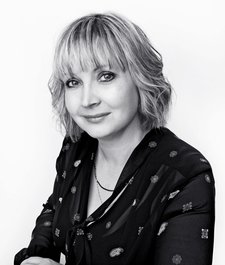
Leah Golob
Sept. 9, 2024
After four years of skyrocketing prices amid scarce supply, the new and used car market appears to now be favouring buyers. Experts caution that it all depends on the vehicle you want.

iStock-1473399437
Car prices are starting to drop after record-high costs during the pandemic, yet experts are mixed on whether the tide’s turned from a seller’s market into a buyer’s market.
When the COVID-19 pandemic hit in 2020, car manufacturers paused orders expecting demand to dramatically decline, which did happen, says Baris Akyurek, vice president of insights and intelligence at Autotrader, an online marketplace for car buyers and sellers.
But, once summer rolled around, consumer demand for vehicles jumped, in part, since fewer people wanted to use public transportation and ride-sharing services. This supply and demand mismatch led prices to skyrocket, Akyurek says.
We’re almost back to 2019 inventory levels when it comes to new cars, Akyurek says, but it will depend exactly on what car you’re looking for.
“If you ask me what happened to the new car inventory situation, we do not have a situation anymore. There’s lots of new cars in the market, so new car availability, at the high level, is good.”
AutoTrader.ca’s June 2024 Price Index reports a 70.4 per cent year-over-year increase in new vehicle inventory and a 28.2 per cent year-over-year increase for used.
The average cost of a new car is now $66,812, down 0.7 per cent year-over-year and a used car is $36,075, down 8.7 per cent year-over-year, according to AutoTrader’s July data. New car interest rates from the lending arm of automotive manufacturers are also down from 6.2 per cent in November 2023 to 5.3 per cent in June 2024, the report says.
With the arrival of new inventory on the lots, pent-up demand is now being met, Akyruek says. In turn, the purchase of new cars contributes to the health of the used market; about 48 per cent of consumers trade-in a used car when buying a new one, he adds. The demand for used cars has fallen though, which explains why prices for used cars are dropping at a much faster rate than new ones.
Due to increased availability and falling prices, Akyurek believes we’re in a buyer’s market for new and used cars. However, the Autotrader report cautions that a return to pre-pandemic prices for both new and used vehicles is unlikely in the near future.
George Iny, director of the Automobile Protection Association, agrees that supply is somewhat better, but says interest rates are not that much lower. Prices have also come down, he said, but it’s still much less affordable than it was four years ago. Vehicle shortages are also still a problem.
“It’s gone from critical to chronic,” he says, explaining that the situation isn’t as acute as it was two years ago, but we’re nowhere near normal, and this is “probably the new normal.”
For example, Iny says, the price of Dodge products shot up so much during the pandemic that demand has now cooled.
“For the vehicles that the public really wants,” he says, like “Toyota, Honda, Lexus and Subaru, there are still delays and they can be several months to several years.”
Used car shortages often follow new car shortages, he adds. So, the shortages we experienced in new cars in 2020 to 2022 will likely be repeated around 2024 to 2026, when leases on those cars would typically end, and they’d go back into the market.
Robert Karwel, director of success at J.D. Power and Associates, says that while used car pricing is down, consumers are also looking at slightly older and worn vehicles on the lots. ”There’s more mileage on the odometer,” he said.
“The theory is that we probably pulled forward a lot of really clean, lightly used cars during the supply crunch two or so years ago,” Karwel said. “What happens now is you’re kind of getting to other vehicles that are left over.”
And, while there is a little bit of relief in vehicle pricing and supply, consumers are going to have to shop around more for where and how they finance their ride.
New vehicle financing is more aggressive right now, Karwel says, partly due to an uptake in smaller, more affordable and efficient vehicles and some slowdowns in heavier, more expensive segments. Interest rates with used cars, on the other hand, are still high and “at a peak.”
If you’re in the market for a specific type of used car, look at the rate of a new car on a similar type of vehicle. “The financing might work in your favour,” he said.
Likewise, Iny is telling consumers in the market for a three-year-old used small car to check the price of a new one first.
“If it’s within five or six thousand dollars to buy new, then buy new because the depreciation is small. It’s two grand a year and it’s not real savings you’re getting when you’re buying used. Your financing rate will be lower on the new car by one or two percentage points.”
And, while you’ll likely want to look for the cheapest deal, be wary of private sales that are too good to be true, says Maureen Harquail, CEO and registrar of the Ontario Motor Vehicle Industry Council.
“Curbsiders,” the term OMVIC uses for unlicensed dealers posing as private sellers, often sell bad vehicles with safety and repair issues for a great price. Over the last two years, OMVIC’s enforcement team has charged nearly 2,000 curbsiders in Ontario under the Motor Vehicle Dealers Act and Consumer Protection Act. Individuals can be fined up to $50,000 while corporations can be fined up to $250,000.
Harquail recommends either vetting the seller or going through an OMVIC registered-dealer.
“If something goes wrong with your purchase of a new or used vehicle, and you bought from an OMVIC registered-dealer, we have a compensation fund that can be there to help consumers if they’ve experienced a loss through that relationship.”


